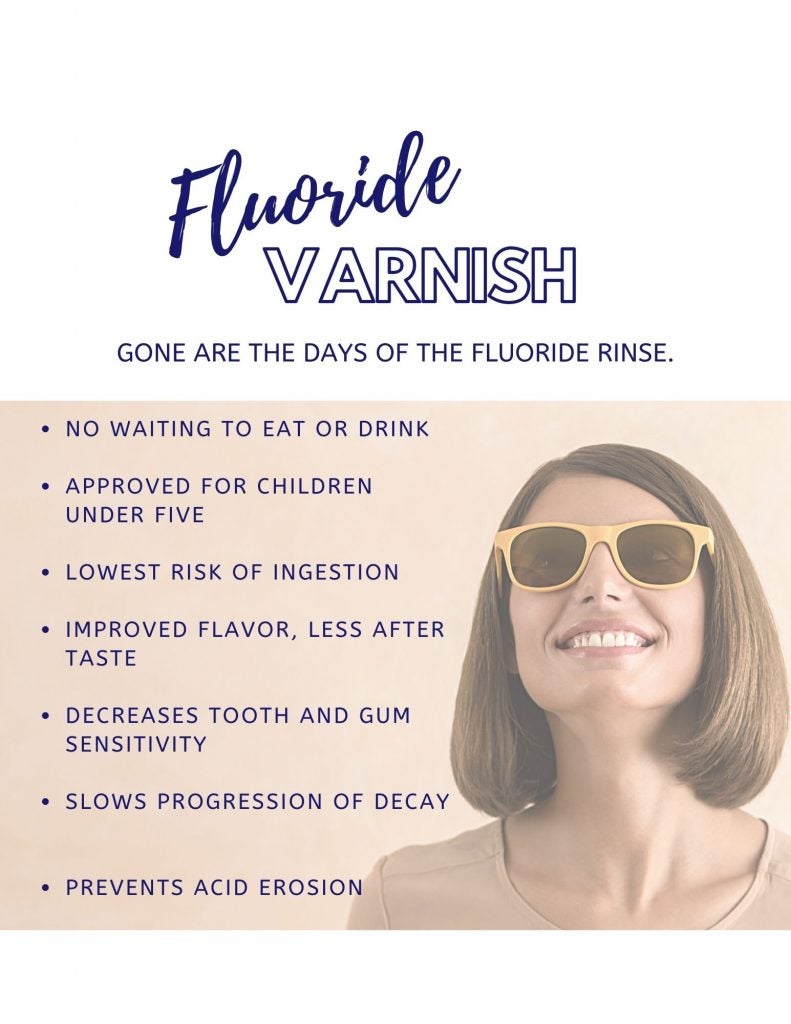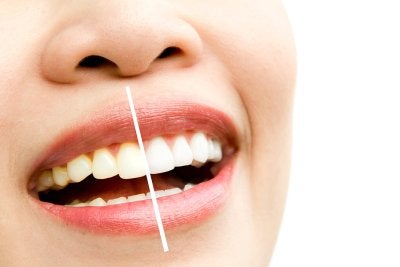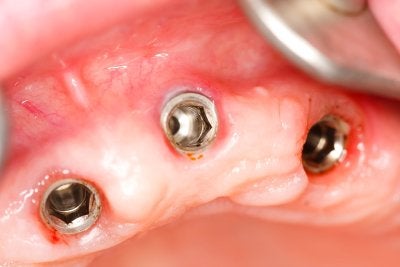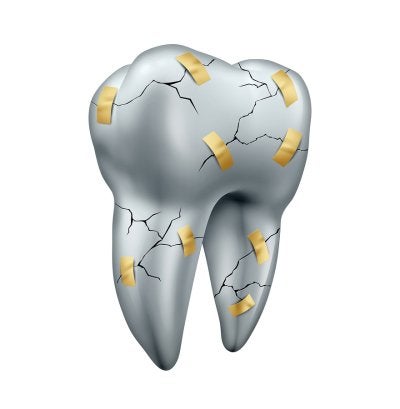-
Let’s Take Prevention to the Next Level

-
Answering Your Questions About Teeth Whitening
Everyone wants a bright and beautiful smile, so it’s no surprise that professional whitening is one of the most commonly performed procedures in cosmetic dentistry. If you’re thinking about seeing a dentist for tooth whitening in Bel Air, MD , then continue reading to learn the answers to common questions about this treatment.

Why is professional whitening better than other options?
The greatest benefit that you’ll gain by seeing a dentist for tooth whitening is speed. Unlike over-the-counter kits, professional whitening uses a stronger formula that can provide you with a noticeably whiter smile in a single treatment. At-home kits that you can pick up at the drugstore often take a week or longer to provide noticeable results.
What happens during teeth whitening?
When you visit your dental office for professional tooth whitening, your dentist will have you wear a tray during the treatment that will cover your teeth with a specially formulated whitening gel. Also, your dentist may use a type of light to enhance the whitening effects of the gel. These appointments typically take about an hour.
How long will my results last?
The answer to this question depends on a number of factors. How well your teeth take to the treatment and how much enamel they have can affect how long your results last. Also, your oral hygiene practices, dietary choices, and lifestyle habits can influence how long your tooth whitening results remain noticeable.
How can I make my results last longer?
Luckily, there are a number of steps that you can take to help retain your tooth whitening results. First, avoid eating or drinking any items that can stain your teeth, such as coffee, tea, soda, berries, and anything tomato-based. If you do choose to eat and drink these items, be sure to rinse your mouth or brush your teeth afterward. Finally, keeping up with twice-daily tooth brushing and biannual dental cleanings can help prevent stains from building up on your teeth.
-
What Are the Benefits of Orthodontic Evaluations for Kids?
A lifetime of proper dental health starts when your teeth first grow in, and there are steps that you should take along the way. When you have children, you become responsible for your kids’ oral health and must make regular visits to the pediatric dentist in Bel Air, MD. If your kids’ dentist determines that your child suffers from malocclusions or other developmental issues, he or she might recommend orthodontic treatment. The quick and efficient discovery through evaluation can lead to timely treatment . Take a look ahead to learn about the dental care benefits that come along with early orthodontic evaluations.
Top dental health in childhood paves the way for excellent oral health throughout the rest of your life. By taking your child to see the pediatric dentist for an orthodontic evaluation, you set your kids up for success. The early use of orthodontic treatments like braces and Invisalign can correct a serious problem early on, preventing it from becoming worse over time and causing additional complications. Your son or daughter can then move on from orthodontic treatment and enjoy a lifetime of proper dental health as well as the confidence boost that comes from a beautiful, healthy smile.

-
How Diabetes Can Affect Your Oral Health
Diabetes is a medical condition that can affect all of the major systems of the body. If you have diabetes, you may be surprised to learn that your oral health can also be affected by this disease. Fortunately, with services and care from a general dentistry office in Bel Air , you will be able to make sure that your teeth and gums remain healthy and strong. Your dental office can assist you with tooth filling, general cleanings, and a variety of other important dental care services. To help you care for your teeth, here is a look at how diabetes can affect your oral health.

Gum Disease
People with diabetes are more likely to develop gum disease than non-diabetics. Gum disease occurs in stages, and can be reversed if it is detected early. The beginning stage of gum disease is known as gingivitis. As gum disease progresses, puffy, red gums may start to bleed and recede. Advanced gum disease may result in tooth loss, abscesses, and other very serious issues.
Tooth Loss
Diabetic patients may also find that they are at increased risk of experiencing tooth loss. There are many reasons why a person may lose a tooth in adulthood. A tooth may need to be extracted if it is severely decayed or infected. Problems with the gum surrounding the tooth may also result in tooth loss. Fortunately, cosmetic dentistry procedures can be used to fill in the space left by a missing tooth and restore a patient’s smile.
Dry Mouth
Dry mouth is another oral health problem that is associated with diabetes. When a patient has a frequently dry mouth, he or she may develop ulcers, sores, and frequent cavities. Dry mouth is also a very uncomfortable condition. With services from a dentist in your area, you can prevent and treat any of the oral health issues that are associated with diabetes. Your dentist can keep your smile healthy and brilliant throughout your lifetime.
-
How to Choose Which Cosmetic Dentistry Treatment Is Right for You
Your smile says a lot about your personality. Unfortunately, many people feel as though they must cover up their smiles because of concerns about the appearance of their teeth. If you’re dissatisfied with your smile, it may be time to make an appointment at a cosmetic dentistry office in Bel Air, MD. There are many cosmetic dentistry options that can brighten your smile, resolve chips and cracks, and even address misshapen teeth and unsightly gaps.

Identify your concerns and goals for your smile.
Consider making a list of all of the things that bother you about your smile. You might be upset that your teeth look dingy or downright discolored, or you may be concerned about that gap between your front teeth. Consider which changes to your smile would give you a boost of self-confidence.
Schedule a consultation with a cosmetic dentist.
Once you have identified the problem areas that you would like to resolve, it’s time to schedule a consultation with a cosmetic dentistry provider. When you arrive at the clinic, be sure to share your full medical history, including any medications you’re taking. This is particularly important if you’re concerned about discoloration; certain medications are a common cause of tooth discoloration. During your visit, your dentist will carefully examine your teeth, including the way the upper and lower jaws fit together. He or she will ask you about your goals for your pearly whites and then design a customized treatment plan that’s right for you.
Learn about your cosmetic dentistry options.
Many people can achieve incredible results with tooth whitening alone. In office whitening procedures are particularly effective. The BriteSmile method is particularly effective. It involves applying specialized teeth whitening gel to your teeth. Then, the BriteSmile blue light is applied to activate the gel. During your treatment, you can relax comfortably while your teeth are undergoing a much-needed makeover. If you have deeper tooth discoloration, such as discoloration caused by medications, then you might need a more intensive treatment. Your dentist might recommend Lumineers, which are porcelain veneers that are bonded to the front sides of your teeth. Lumineers are an effective way to instantly camouflage a wide range of dental imperfections-from discoloration and chips to gaps and misshapen teeth. These are just a couple of the cosmetic dentistry options that may be available to you. Your dentist can help you decide which one is right for you.
-
What to Do In a Dental Emergency
It’s common knowledge that it’s important to see a dentist every six months for an exam and professional cleaning, but there are some situations that call for an additional visit to a dental clinic in Bel Air, MD. You should see an emergency dentist if you experience oral injuries, significant dental pain, or tooth trauma such as a dislodged tooth. While you’re on your way to the emergency dentist’s office, there are some steps you can take to ease your discomfort.

Toothache
Minor toothaches might not always require emergency dental care. Sometimes, they’re caused by food debris trapped between the teeth. Swish warm water around your mouth and use dental floss to gently clean between your teeth. Never apply aspirin to the gum tissues; instead, you can apply a cold compress to the exterior of your mouth. If your toothache doesn’t go away, you should call an emergency dentist.
Chipped or Cracked Tooth
Chipped and cracked teeth are not an uncommon problem. If possible, save the chipped pieces of the tooth. Rinse your mouth with warm water. If the gums are bleeding, apply a piece of sterile gauze for about 10 minutes to stop the bleeding. Then, visit an emergency dental clinic and be sure to bring the chipped pieces of your tooth. While you’re on your way there, you can apply a cold compress to the exterior of your mouth to relieve your discomfort.
Partially Dislodged Tooth
A cold compress can also relieve the pain of a partially dislodged tooth. If need be, you can take an over-the-counter pain reliever. These are only temporary measures; see an emergency dentist as soon as possible.
Avulsed Tooth
An avulsed tooth is one that has been completely knocked out of the mouth. It might still be possible to save a knocked-out tooth if you get to the emergency dental clinic in time. Pick up the tooth, holding it by the crown. Rinse it with water if it’s dirty, but do not scrub it. It may be possible to reinsert the tooth into its socket; be sure it faces the correct way. If not, place the tooth in a cup and cover the tooth in milk. If you do not have any milk, add water and a pinch of salt. See your dentist within an hour.
-
Missing Teeth and Your Health
If you are missing teeth due to tooth decay, trauma, or a tooth extraction near Bel Air, MD, your dentist will recommend replacing your missing teeth with prosthetics . There are a few cosmetic dentistry options for replacing missing teeth, including dentures, dental bridges, and dental implants. If you don’t seek restorative or cosmetic dental care, you may develop serious complications and health problems.
Watch this video from the American Dental Association to learn more about missing teeth and your health. If your dentist doesn’t replace your missing teeth with cosmetic dentistry restorations, you may suffer from shifting or crooked teeth, jawbone loss, facial deformity, and difficulty eating and speaking. When dentures or dental bridges are anchored to your jawbone using dental implants, you can reduce your risk of health problems. You can also restore your smile, and ensure that you can comfortably eat, speak, and maintain your dental care routine.
-
Are Dental Implants Right for You?
Your dentist may recommend that you get dental implants near Bel Air, MD if you have undergone a tooth extraction, have a severely chipped tooth, or are missing one or more teeth. Dental implants are a safe, effective cosmetic dentistry alternative to dentures and dental bridges. Here is a look at some of the reasons that you may want to discuss dental implants with your dentist.

You are missing one or more teeth.
Your dentist can replace one or more missing teeth via a relatively simple cosmetic dentistry procedure using dental implants. A dental implant is a prosthetic tooth that is attached to a titanium rod that is implanted directly into your jawbone. The prosthetic tooth can be customized to match the size, shape, and color of your remaining natural teeth. This means that it looks almost unnoticeable when you talk and smile.
You are looking for an alternative to dentures or a dental bridge
Dentures and dental bridges are other cosmetic dentistry options that can be used to repair a chipped tooth or replace missing teeth. If you are missing all of your teeth, your dentist will recommend that you receive dentures. However, if you are only missing one or two teeth, dental implants are a better cosmetic dentistry solution. Because dental implants are anchored to the jawbone, they prevent many dental problems associated with missing teeth. Dental implants will ensure that you don’t suffer from jawbone loss, shifting teeth, or facial deformity. Dentures are not anchored to the jawbone, and thus do not prevent these problems.
You are in good physical health and committed to future dental care.
Your dentist will determine if you are a good candidate for dental implants. To be a good candidate, you must be committed to maintaining your future dental care. You will need to brush, floss, and use mouthwash at home. You must also visit your dental clinic at least every six months for dental cleanings and exams. You may not be a good candidate for dental implants if you have severe bone loss or advanced gum disease, smoke regularly, or have certain existing medical conditions.
-
Causes of Sensitive Teeth
Do you have sensitive teeth? You may need to make an emergency dental appointment with a dental clinic near Bel Air, MD to help find the root cause of your tooth pain. Read on to learn more about what your dentist might say is behind your current tooth sensitivity.

Tooth Sensitivity and Tooth Structure
In order to gain a better understanding of why your teeth have become sensitive, it’s important to first understand how the teeth are structured. The hard outer layer of your tooth is called tooth enamel. It protects the inside of your tooth, which mainly consists of dentin, a tissue filled with small tubes containing microscopic nerve endings. Your teeth may become sensitive when your tooth enamel is worn down, exposing the nerve-filled dentin below. This can potentially be very painful, especially when you eat foods that are hot, cold, acidic, or sticky.
Tooth Sensitivity and Dental Issues
Several different dental issues can cause your tooth enamel to become worn down and eroded. Even using a hard toothbrush during your daily dental care routine and brushing too aggressively can weaken your tooth enamel. Likewise, grinding your teeth at night can also damage tooth enamel. Ask your dentist to check for signs of grinding and excessive wear patterns on your teeth; he or she may recommend using a mouth guard at night so that the problem does not become exacerbated.
Tooth Sensitivity and Diet
If you tend to consume highly acidic foods and drinks, such as sodas and certain fruits, you may also be weakening your tooth enamel. Limit your intake of acidic foods and aim to brush after meals to get rid of leftover acid in your mouth. Finally, tooth decay, damaged fillings, and broken or chipped teeth can expose your tooth dentin—as can gum recession. Your dentist should be able to locate and repair broken dental work that may be causing your tooth sensitivity. As for gum recession, it’s important to maintain a proper daily dental hygiene routine in order to prevent additional gum recession and the pain that goes along with it.
-
What to Do About a Chipped Tooth
If you have a chipped tooth in Bel Air, MD, your first step should be to contact your dentist. A chipped, cracked, or knocked-out tooth is one of the most common dental emergencies . While a minor chipped tooth may not initially be accompanied by any adverse symptoms, chipped teeth can result in severe tooth pain or sensitivity. Even teeth that do not appear to be damaged can cause major health problems if left untreated. Keep reading to learn more about what you should do about a chipped tooth, including immediate care, professional care, and follow-up care.

Immediate Care
Even before you contact your dentist, you should rinse your mouth with warm water. After you chip a tooth in an accident or fall, bacteria and dirt can enter your mouth. Simply rinsing the affected area goes a long way toward preventing infection. If your mouth is bleeding, apply a clean piece of gauze and press firmly until the bleeding stops. If you cannot get in to your dental clinic on the day of the accident, purchase dental cement from your local drugstore to seal the tooth.
Professional Care
Depending on the size and severity of the chip, your dentist has many options for fixing your chipped tooth. If the chip is extremely small, a dentist may simply smooth and polish the affected area. If your tooth enamel has been damaged and the chip is visible to the naked eye, your dentists may use a filling, dental crown, or cap to restore the look and function of your tooth. If you have severely compromised the tooth structure, you may need a root canal to remove the infected inner tooth pulp.
Follow-Up Care
Follow-up care for your chipped tooth is highly dependent on your dentist’s recommendations. If you have had a root canal or need a prosthetic device like a crown or bridge, your dentist will give you exact instructions on how to care for your restoration and ward off infection. Regardless of your treatment plan, it is essential to maintain proper oral hygiene after chipping a tooth.
RECENT POSTS
categories
- Uncategorized
- General Dentistry
- Toothache
- Emergency Dentistry
- Family Dentistry
- Receding Gums
- Cosmetic Dentistry
- Veneers
- Gum Disease
- Gingivitis
- Dental Crowns
- Orthodontics
- Dental Implants
- Root Canal
- Wisdom Teeth
- Teeth Whitening
- Your Smile
- Composite Fillings
- Lumineers
- Dentures
- Invisalign
- BrightSmile
- Dental Bridge
- Abscessed Tooth
- Sealants
